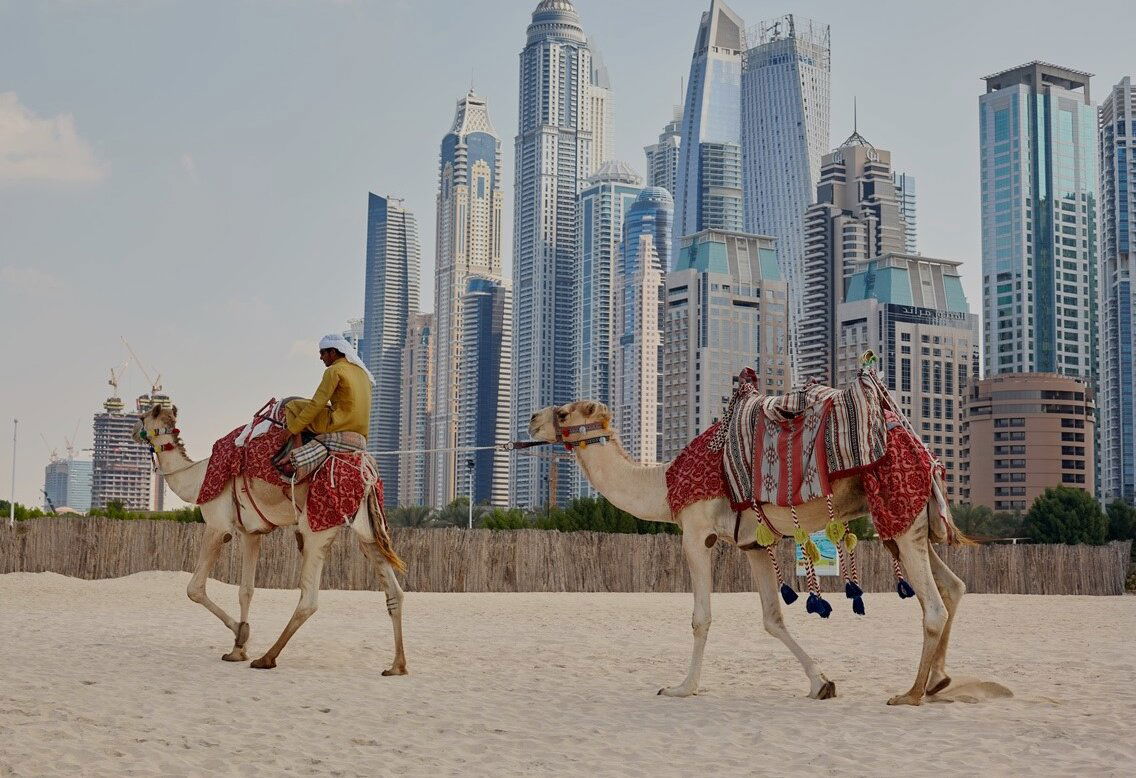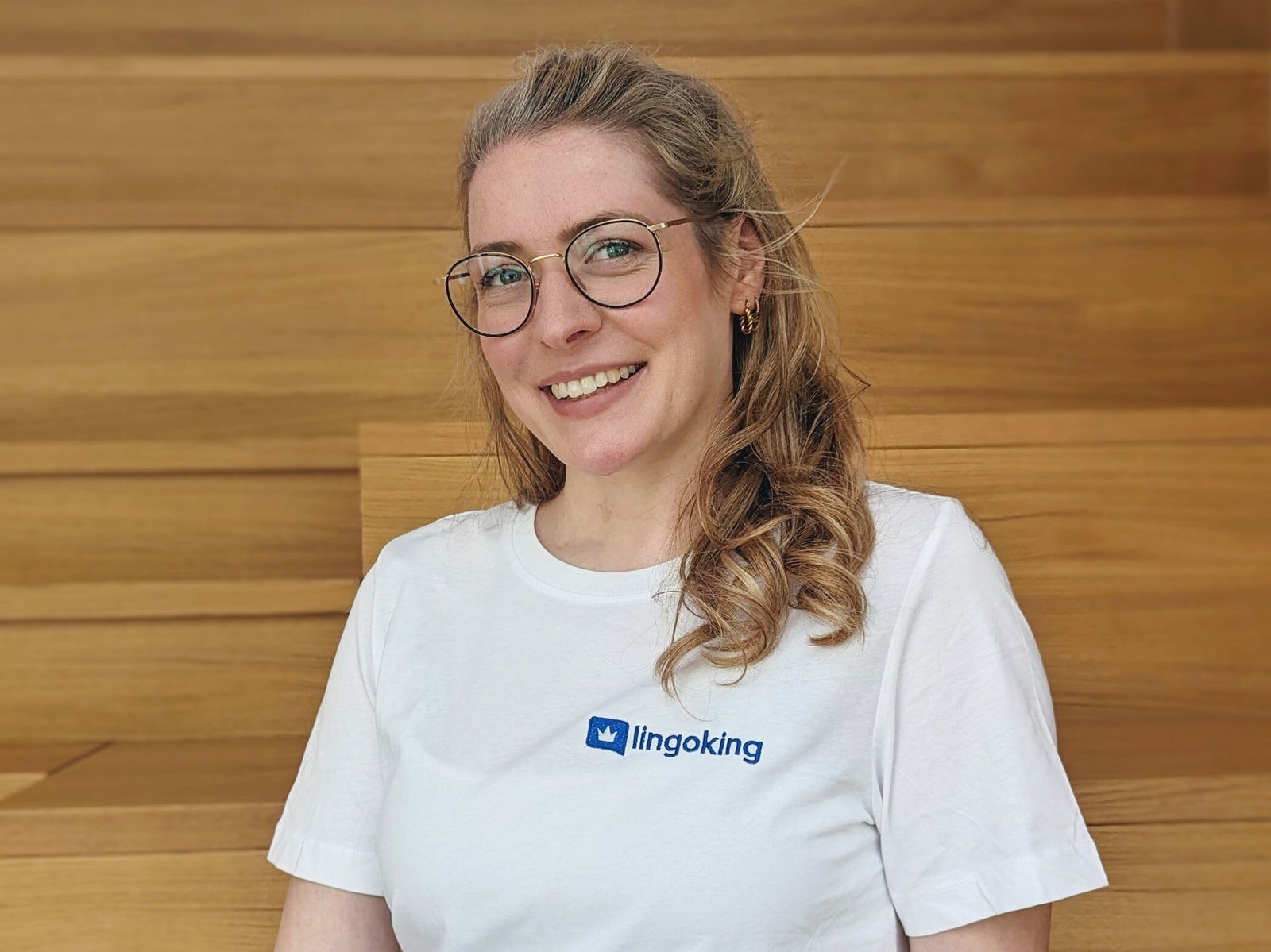
Living in Dubai
Are you fascinated by the glitz and glamour of the pearl on the Persian Gulf? Do you want to live in a city that never sleeps? Life in Dubai never stands still. The city is in constant flux and luxury awaits you around every corner. Learn more about living in Dubai, the climate, safety, the infrastructure, the healthcare system, and life as a woman in Dubai.
General information about Dubai
Dubai is both a city and an emirate in the United Arab Emirates, with 99 percent of the people in the Emirate of Dubai living in the city of Dubai. The United Arab Emirates (UAE) comprise a total of seven emirates, including the largest, Abu Dhabi. About 10,000 Germans live in the UAE. Dubai has a total population of 3.6 million.
The official language in the United Arab Emirates (UAE) is Arabic. The language of trade and business is English, which is spoken almost everywhere. The UAE is an authoritarian state. The country has a large proportion of Muslims at over 75 percent of the population. Other religious communities represented are Christians, Hindus and Buddhists.
Mild to tropical climate
For many people, Dubai’s climate is one of the main reasons for emigrating. Winter is attractive with a mild 20 to 25 degrees. Summer, however, can see temperatures of 40 to 50 degrees. In addition, the climate in summer is also quite humid, as Dubai is located on the Persian Gulf. In summer, it is therefore advisable not to spend too much time outside in the midday sun, but rather to retreat into air-conditioned buildings. The mild temperatures encourage residents to spend a lot of time outside, for example in the park. Caution is advised the threat of a “haboob” is announced: these are sandstorms that can hit Dubai due to its location near the desert.
Safety and Crime
Dubai is considered one of the safest cities in the world and has a low crime rate. This is ensured by a high police presence, surveillance cameras and a lot of security personnel. However, this high level of safety has its cost: the laws are strict and penalties for theft, for example, severe. It is not uncommon for prison sentences to be imposed even for minor offences.
Please refer to our information on penalties in Dubai.
Infrastructure and driving
Dubai has two airports: Dubai International Airport (DXB) and Dubai-World Central Airport (DWC). The best-known airlines in the UAE are Emirates, Etihad Airways and FlyDubai. Dubai also has the most important commercial port on the Persian Gulf, the “Jebel Ali” seaport.
But you are also well connected by public transport within the city of Dubai itself, with buses, metros and trams. Public transport is inexpensive and has frequent schedules. Moreover, 800 of the 1,000 bus stops have air-conditioned waiting rooms.
Driving and driving licence
But Dubai also has a very high rate of motorisation. It is mainly those with a medium to high standard of living that can afford to drive in Dubai. Dubai is connected to Abu Dhabi, Sharjah, Hatta and Al-Ain by motorway. Most petrol stations offer a service so that customers do not have to get out of their air-conditioned cars. A toll system called “Salik” is in operation on some roads in Dubai.
With a permanent residence permit, you must have your driver’s licence converted immediately for the first day of your stay. If you do not do this, it is considered “driving without a valid driver’s licence”.
You will need the following documents for the conversion:
- Letter from your employer regarding your residence permit (original and copy)
- Foreign driver’s licence (original and copy)
- Arabic translation of the driver’s licence
- Passport photo
Health and education system
There is no social system in Dubai due to the lack of income tax. This means that you have to pay for your own health insurance. However, you can already negotiate this together with your employment contract. The healthcare system in Dubai is very good and comprises both public and private healthcare facilities. However, the majority of facilities are now private. Health workers, such as nurses and doctors, often come from abroad, so communication in English is usually not a problem. There are also plenty of pharmacies to be found in Dubai. Most of them are even open 24 hours.
The education system in Dubai is not free of charge for children and young people. This means that your children will have to attend a private school, and you will have to factor additional costs into your budget. The good news, however, is that there is a German international school in Dubai. Students in Dubai must always attend an Arabic language course, even if the knowledge gained is not tested at a later stage.
Housing and living costs
Shops in Dubai are open until 12 pm or even 24/7. Food prices are about as high as in Germany or even cheaper. European products tend to be more expensive. The cost of a meal in a restaurant varies greatly. You can spend up to 250 euros or only 50 euros. The same applies to the rental costs: depending on the standard of living you want to enjoy in Dubai, you will find both very expensive apartments and houses or cheaper properties on the same price point as German cities such as Munich. For example, as a family of four, a total monthly budget of 5,000 euros may be enough for you or you may find you need 12,000 euros or more.
Living in Dubai as a woman
A lot has been done in Dubai in recent years to strengthen women’s rights. In the working environment, for example, it is stipulated by law that women and men must be paid equally. In addition, women are now allowed to take 45 days of maternity leave. A regulation on discrimination in the workplace was enacted recently. Women are now represented in all fields in Dubai, including politics.
In Dubai, wearing skimpy clothing is no longer frowned upon quite as harshly as it is in Abu Dhabi, for example. Nevertheless, you should not walk around in a miniskirt or tight shorts. Many women also feel very safe in Dubai due to the low crime rate.
Muslim religion
However, there are still some restrictions in Dubai that are related to the Muslim religion.
For example, the consumption of alcohol in Dubai is strictly controlled. Non-Muslims must apply for a free alcohol licence in order to be allowed to consume alcohol privately. Alcohol consumption and drunkenness in public are prohibited. In addition, only licenced restaurants, bars and clubs in Dubai are allowed to serve alcohol.
Similarly strict rules apply to the Ramadan period. During this time, eating, drinking or smoking in public are not allowed. This even means no ice cream or chewing gum, and the rules apply to Muslims and non-Muslims alike. There are no penalties for non-compliance, but you can expect insults and stern looks. Muslims in Dubai simply consider it disrespectful if even non-Muslims do not abide by these rules.
Public displays of affection, such as kissing and holding hands, is no longer a problem, but you should refrain from exuberant expressions of love. In Abu Dhabi, the situation is different: here, it is often forbidden to kiss or wear skimpy clothing.
The UAE is criticised time and again for violating human rights. We have some information on this for you:
Severe penalties for minor offences: Safety on Dubai’s streets comes at a high price. For example, high penalties are in place for even minor offences, such as alcohol consumption and drunkenness, photographing public buildings, possession of CBD oil or hemp-flavoured foods, and expressing critical opinions of the government and the Muslim religion...
Restricted freedom of expression and of the press: Freedom of expression in Dubai is severely restricted. Expression of critical opinion towards the government and the Muslim religion is prohibited and punished. Freedom of the press is also restricted. The UAE ranks 160th (out of 180) in Reporters Without Borders’ press freedom ranking.
LGBTQ+: Homosexuality is prohibited in Dubai. Homosexual acts are punishable by prison sentences of six months or more. Cross-dressing, for example wearing women’s clothing as a man, is also prohibited and is also severely punished. Also, your passport is only valid if you are considered male or female.
No minimum wage: There is no minimum wage in Dubai. For many migrant workers, this means a very difficult life in Dubai. The gap between rich and poor is very wide. Luxury and grandeur are not available to everybody in Dubai.
Further information can be found on the website of the Federal Foreign Office.
Population: 3.6 million
Size: 35 square kilometres
Currency: UAE Dirham (AED)
Units of measurement: metric system (kilometres, metres, centimetres, etc.)
Official language: Arabic
Business language: English
Road traffic: Right-hand traffic
German Embassy: Abu Dhabi
Consulate General: Dubai
Climate: mild to tropical, hot and humid
FAQs: Living in Dubai
Food prices are about as high as in Germany. Rent prices vary greatly, depending on the standard of living you want to maintain. However, you have to expect additional costs for insurance and financial security, as there is no social system in Dubai and therefore no statutory health, social or pension insurance. If you have children, you will need to factor in additional costs for a private school, as there are no public schools in Dubai.
In order to live in Dubai as a German citizen, you must apply for a visa that entitles you to permanent residence.
Dubai has done a lot to strengthen women’s rights in recent years. Women are now represented in all sectors, including politics. However, there are still a few restrictions when it comes to clothing. Miniskirts and hot pants should be avoided in Dubai. However, many women feel very safe due to the low crime rate in Dubai. Respect for women has increased greatly there.
Dubai is considered one of the safest cities in the world. However, sometimes severe penalties are also imposed for rather minor offences. In addition, security is ensured by a high presence of police, surveillance cameras and security personnel.
For most visas, you will need a job. You must be healthy and have no criminal record. You will also need a lease agreement for an apartment or house in Dubai or alternatively you must own a property in Dubai. You also need health insurance, which is best negotiated with your employment contract.

